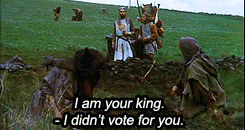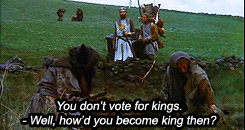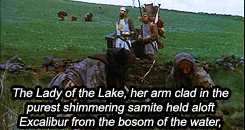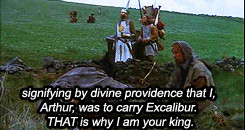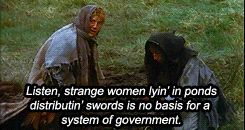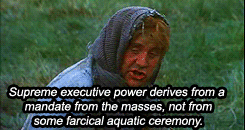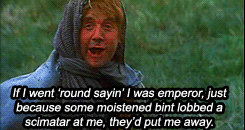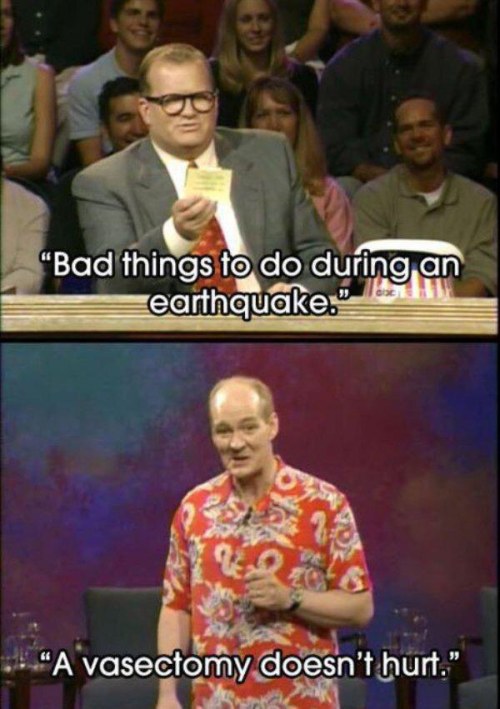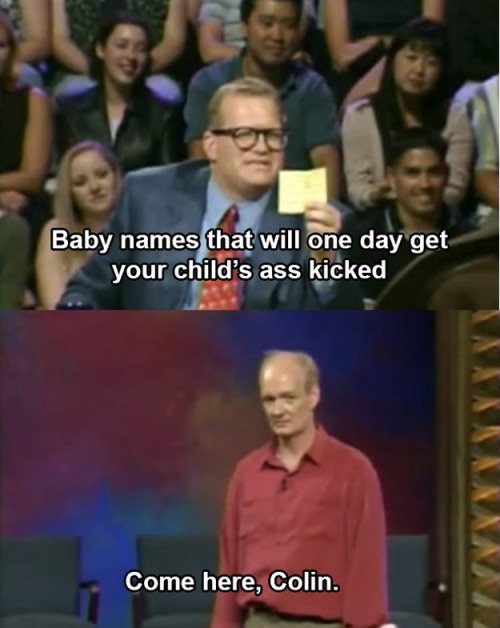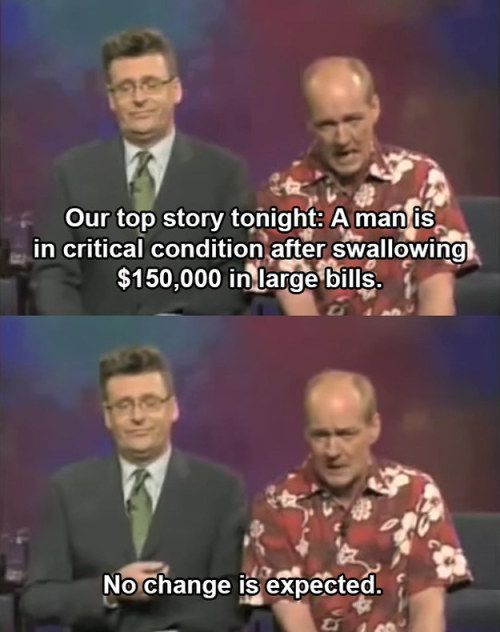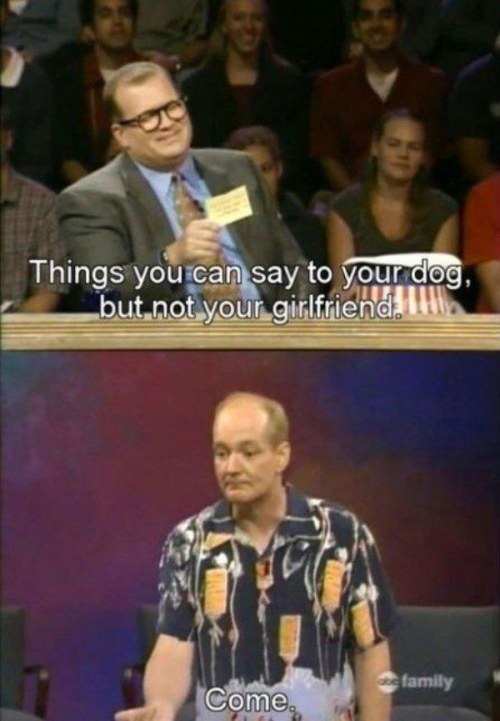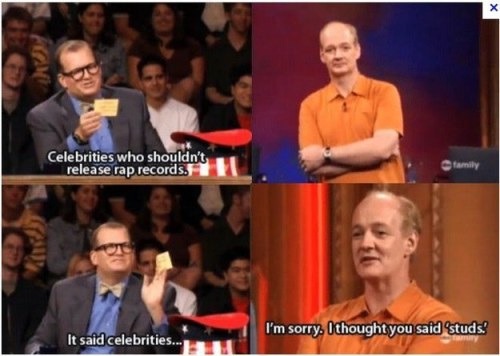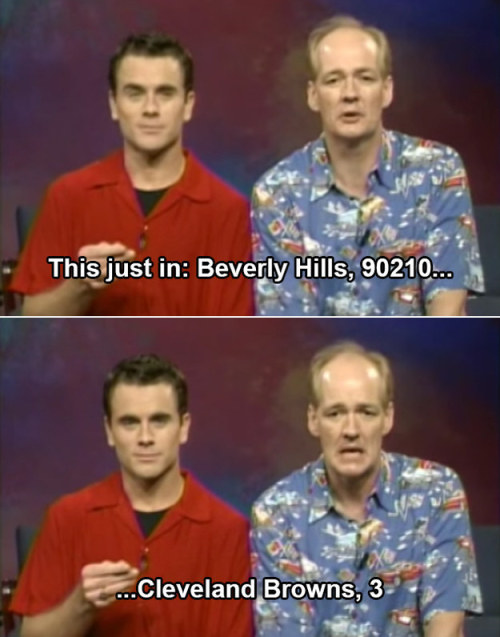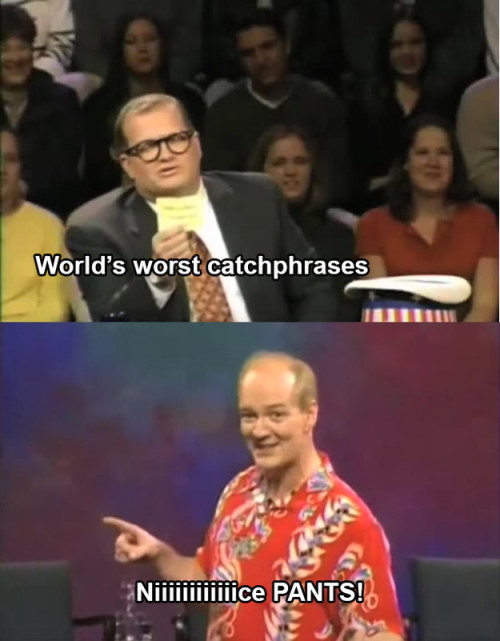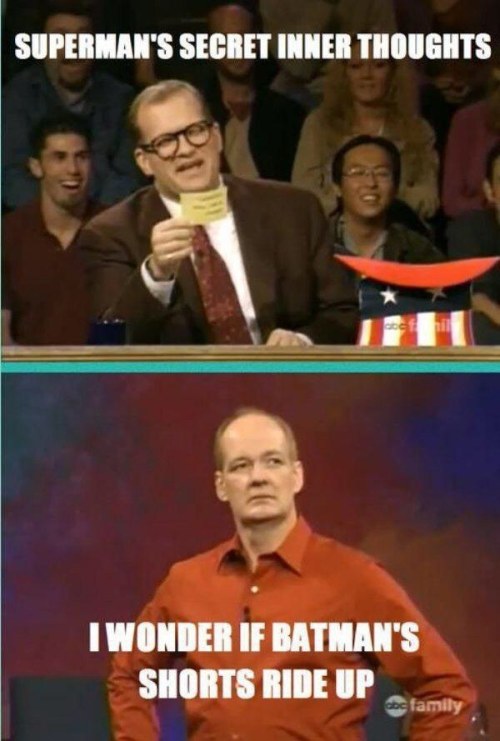Anyone Else?
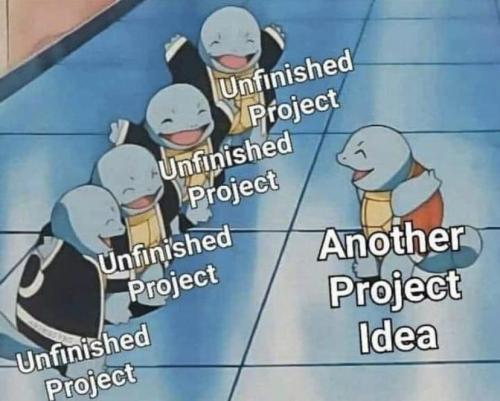
Anyone else?
More Posts from Vcsupertramp and Others
Keep this in mind the next time you are about to repeat a rumor or spread gossip.
In ancient Greece (469 – 399 BC), Socrates was widely lauded for his wisdom. One day an acquaintance ran up to him excitedly and said, “Socrates, do you know what I just heard about Diogenes?”
“Wait a moment,” Socrates replied, “Before you tell me I’d like you to pass a little test. It’s called the Triple Filter Test.”
“Triple filter?” asked the acquaintance.
“That’s right,” Socrates continued, “Before you talk to me about Diogenes let’s take a moment to filter what you’re going to say. The first filter is Truth. Have you made absolutely sure that what you are about to tell me is true?”
“No,” the man said, “Actually, I just heard about it.”
“All right,” said Socrates, “So you don’t really know if it’s true or not. Now let’s try the second filter, the filter of Goodness. Is what you are about to tell me about Diogenes something good?”
“No, on the contrary…”
“So,” Socrates continued, “You want to tell me something about Diogenes that may be bad, even though you’re not certain it’s true?”
The man shrugged, a little embarrassed. Socrates continued, “You may still pass the test though, because there is a third filter, the filter of Usefulness. Is what you want to tell me about Diogenes going to be useful to me?”
“No, not really.”
“Well,” concluded Socrates, “If what you want to tell me is neither True nor Good nor even Useful, why tell it to me or anyone at all?”
The man was bewildered and ashamed. This is an example of why Socrates was a great philosopher and held in such high esteem.
It also explains why Socrates never found out that Diogenes was banging his wife.
What's your best example of correlation not equaling causation?

Hello! So I want to get more into literature, like the eras and classics I should read. (I like to write so I want to educate myself) Where should I start? Or maybe could u give me a list of good ones? (If this is in ur FAQ I'm so so so sorry I don't know how to access it on my phone and I don't have a computer I can get to!) thanks so much if u respond!!! :) love ur blog!
Well, first of all, thank you! And secondly: oh my, an essentials guide to all literature? Since I’m rather narrow in my interests and I haven’t studied literature in any capacity other than in high school (I’m graduating this summer), I can’t guarantee this will be as objective or thorough as it should be, but I’ll give it my best shot.
This is going to be mostly European literature and listed chronologically era-wise (era as in historical, not literary) but probably not author-wise, the former because the education system where I live is focused on European literature and history, and the latter because I list these as they come to me.
Another thing to note is some of these are works you should know about and not absolute must-reads, as they can be very long and hard to read, but are crucial to know because they’ve been historically influential and/or have inspired countless other works.
A third note: certain… 20th century parts of this list don’t reflect my personal preferences at all. Take from that what you will.
Right then, this introduction has taken long enough… here we go.
WESTERN LITERATURE: A MASTERLIST (of sorts)
CLASSICAL
Subdivision: Greek
my existing rec list here
Aeschylus. Oresteia.
Aristophanes. Lysistrata.
Plato. The Republic.
Subdivision: Latin
Cicero. Catiline Orations.
Julius Caesar. Commentaries on the Gallic War.
Virgil. The Aeneid.
Ovid. Metamorphoses.
Seneca the Younger. Epistles.
Apuleius. Metamorphoses (which is sometimes known as The Golden Ass).
MEDIEVAL
Dante Alighieri. The Divine Comedy.
Petrarca. Song Book.
Boccaccio. Decameron.
Geoffrey Chaucer. The Canterbury Tales.
Elder Edda.
Sir Thomas Malory. Le Morte d’Arthur.
Subdivision: epic poems
Beowulf.
Poem of the Cid.
The Song of the Nibelungs.
The Song of Roland.
The Tale of Igor’s Campaign.
EARLY MODERN
Subdivision: Shakespeare.
Romeo & Juliet.
Hamlet.
A Midsummer Night’s Dream.
Othello.
Julius Caesar.
King Lear.
Much Ado About Nothing.
Molière. Tartuffe. || Don Juan. || The Misanthropist.
Cervantes. Don Quixote.
Christopher Marlowe. Doctor Faustus.
John Donne. The Canonization.
John Milton. Paradise Lost.
EDIT: didyouknowflaubert suggested in addition:
François Rabelais. The Life of Gargantua and of Pantagruel.
Michel de Montaigne. various essays.
18th CENTURY
Daniel Defoe. Robinson Crusoe. || Moll Flanders.
Eliza Haywood. Love in Excess.
Voltaire. Candide. || Micromégas.
Rousseau. Émile.
Frances Burney. Evelina.
René Descartes. Meditations on First Philosophy.
19th CENTURY
Subdivision: Romanticism
my existing rec list here.
Charles Dickens. Bleak House. || A Tale of Two Cities. || Great Expectations. || Oliver Twist.
William Makepeace Thackeray. Vanity Fair.
Charlotte Brontë. Jane Eyre.
Emily Brontë. Wuthering Heights.
Anne Brontë. The Tenant of Wildfell Hall.
Thomas Hardy. Tess of the d’Urbervilles. || Far from the Madding Crowd.
Emily Dickinson. various poetry.
Nathaniel Hawthorne. The Scarlet Letter.
Mark Twain. The Adventures of Tom Sawyer. || The Prince and the Pauper.
Walt Whitman. Leaves of Grass.
Oscar Wilde. The Picture of Dorian Gray.
Robert Louis Stevenson. Strange Case of Dr Jekyll and Mr Hyde.
Fyodor Dostoyevsky. Crime and Punishment. || The Idiot.
Johann Wolfgang von Goethe. Faust. || The Sorrows of Young Werther.
Victor Hugo. Les Misérables. || The Hunchback of Notre-Dame.
Jane Austen. Pride and Prejudice. || Emma. || Northanger Abbey.
Anton Chekhov. Three Sisters. || The Cherry Orchard. || various short stories.
Thomas Babington Macaulay. Critical and Historical Essays.
Leo Tolstoy. War and Peace. || Anna Karenina.
H. G. Wells. The Time Machine. || The War of the Worlds.
Gustave Flaubert. Madame Bovary.
Guy de Maupassant. Bel-Ami. || Mont-Oriol. || various short stories.
Aldous Huxley. Brave New World.
Bram Stoker. Dracula.
20th CENTURY
E. M. Forster. A Room with a View.
W. B. Yeats. various poetry.
Maurice Maeterlinck. The Blue Bird.
Franz Kafka. The Metamorphosis.
Virginia Woolf. Between the Acts. || Mrs Dalloway.
T. S. Eliot. The Love Song of J. Alfred Prufrock.
James Joyce. Ulysses.
Hermann Hesse. Steppenwolf.
F. Scott Fitzgerald. The Great Gatsby.
Ernest Hemingway. For Whom The Bell Tolls. || The Sun Also Rises.
H. P. Lovecraft. The Call of Cthulhu.
Erich Maria Remarque. All Quiet on the Western Front. || Arc de Triomphe.
Evelyn Waugh. Brideshead Revisited.
Vladimir Nabokov. Lolita.
John Steinbeck. Of Mice and Men. || East of Eden.
J. R. R. Tolkien. The Hobbit. || The Lord of the Rings.
Daphne du Maurier. Rebecca.
George Orwell. 1984. || Animal Farm.
Margaret Mitchell. Gone with the Wind.
Anne Frank. The Diary of a Young Girl.
Harper Lee. To Kill a Mockingbird.
William Golding. Lord of the Flies.
Ray Bradbury. Fahrenheit 451.
Allen Ginsberg. Howl and Other Poems.
Jack Kerouac. On the Road.
J. D. Salinger. The Catcher in the Rye.
Kurt Vonnegut. Slaughterhouse-Five.
Sylvia Plath. The Bell Jar.
Gabriel García Márquez. One Hundred Years of Solitude. || Love in the Time of Cholera.
Mikhail Bulgakov. The Master and Margarita.
Thomas Harris. The Red Dragon.
Michael Ondaatje. The English Patient.
Neil Gaiman. Stardust.
Bret Easton Ellis. American Psycho.
Donna Tartt. The Secret History.
Chuck Palahniuk. Fight Club.
Stephen King. Carrie. || The Shining. || The Dark Tower.
Shirley Jackson. We Have Always Lived in the Castle. || The Lottery.
Tom Stoppard. Rosencrantz and Guildenstern Are Dead.
Simone de Beauvoir. The Second Sex.
Jorge Luis Borges. Book of Imaginary Beings. || various short stories.
Terry Pratchett & Neil Gaiman. Good Omens.
21st CENTURY
Haruki Murakami. Kafka on the Shore. || 1Q84.
Suzanne Collins. The Hunger Games.
Neil Gaiman. American Gods.
Ian McEwan. Atonement.
Jeffrey Eugenides. Middlesex.
Kazuo Ishiguro. Never Let Me Go.
J. K. Rowling. Harry Potter.
Khaled Hosseini. The Kite Runner. || A Thousand Splendid Suns.
Carlos Ruiz Zafón. The Shadow of the Wind.
Gillian Flynn. Sharp Objects. || Gone Girl.
Elizabeth Kostova. The Historian.
Cormac McCarthy. No Country for Old Men.
Richard Siken. Crush.
Mark Z. Danielewski. House of Leaves.
Donna Tartt. The Little Friend. || The Goldfinch.
Elizabeth Wein. Code Name Verity.
Warsan Shire. Teaching My Mother How to Give Birth.
Catherynne M. Valente. Deathless.
Sofi Oksanen. The Purge.
This is more or less all I’ve got… for now.
Good luck!
xx
Fred: We can never let anyone know that we got beat up by Ginny.
George: Agreed.
Fred: Take it to the grave?
George: To the grave.
Fred: This conversation never happened.
George: I don't even know who you are.
Fred: ...That's hurtful, you took it too far.
George: That's a weird thing for a stranger to say.
I’m not really sure how script-writing works. Do writers leave certain reactions from characters out of the script in order to maintain mystery? Like on the script we don’t get to see much of Bellamy’s feelings/thoughts while walking towards Clarke since it’s mostly in her POV, but from Bob’s acting we can tell he’s really emotional. For scenes like that, when certain feelings aren’t yet canon, do writers purposely leave out any potential hints to them and tell the actors how to act it out?
Well, I’m not a script writer either, but I’ve been around a lot of actors, and I’ve studied it a little bit. The thing about plays or tv or movies? They’re a collaborative art.
As a novelist, I write the whole thing and then the reader finishes the story in their brain.
With a screen play. The writer writes the basic scaffolding, the dialogue and the stage directions, then the director figures out the direction to go, then the actor adds in their humanity and artistry, the costumers and set designers create the world the characters go through, the cinematographer captures the best images to tell the story, the editor cuts it and puts it together to sculpt the story, the composer adds the music to give emotion to it all,
So. what you see is all those people working together to tell the story. Each artist puts their touch to create this larger world, and ALL of them contribute to the thoughts and feelings you have when you watch.
We see the actors faces and hear the writer’s words, but it all goes into it. If there’s something that they want the actors to act towards, I’m sure the show runner or director will talk to them about it. But there’s been a lot of emotion that we’ve seen on screen already, and the actors are building on all those character choices they’ve already made. For all we know, Bob’s already gotten the direction that Bellamy’s in love with Clarke. It didn’t have to be in that scene. It could have been another, or not in the stage directions at all, but spoken to him by JR or another director. The scripts aren’t for us at all. They are behind the scenes.
tolkien: all the war and death in lotr has nothing to do with the war i was in
tolkien: just like how all the morals/good vs evil/everything my characters believe have nothing to do with my morals/beliefs/religion
tolkien: and that character that comes back from the dead has nothing to do with my religion which is based on someone coming back from the dead and uses coming back from the dead as metaphor literally constantly so don’t get any ideas
tolkien: and none of those giant evil spiders have anything to do with the tarantula that bit me either
clive staples: jirt youre literally so stupid
tolkien:
clive:
tolkien: that really slow grumpy tree who takes forever to get to the point or make up his mind is definitely you though
The smoothness of the “walk"🎵♬ ♩ ♪

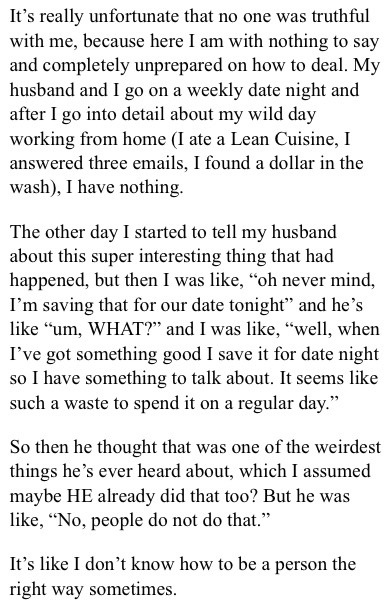
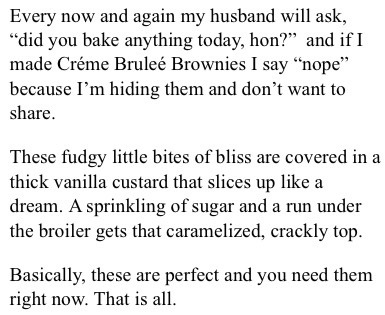
I love it when I click on a recipe link because it sounds yummy and instead of a recipe I get a several page dissertation on a food blogger’s boredom with her marriage and lies she was told in childhood
-
 manadragonmaster reblogged this · 1 month ago
manadragonmaster reblogged this · 1 month ago -
 manadragonmaster liked this · 1 month ago
manadragonmaster liked this · 1 month ago -
 lilychan347 liked this · 2 months ago
lilychan347 liked this · 2 months ago -
 ghostiebotbabe reblogged this · 3 months ago
ghostiebotbabe reblogged this · 3 months ago -
 ghostiebotbabe liked this · 3 months ago
ghostiebotbabe liked this · 3 months ago -
 expederest reblogged this · 3 months ago
expederest reblogged this · 3 months ago -
 hereforthememestbh liked this · 3 months ago
hereforthememestbh liked this · 3 months ago -
 glitterandgrunge reblogged this · 3 months ago
glitterandgrunge reblogged this · 3 months ago -
 glitterandgrunge liked this · 3 months ago
glitterandgrunge liked this · 3 months ago -
 gaylienz liked this · 5 months ago
gaylienz liked this · 5 months ago -
 thefreakyroxanne liked this · 6 months ago
thefreakyroxanne liked this · 6 months ago -
 ohsnapitsmagic reblogged this · 7 months ago
ohsnapitsmagic reblogged this · 7 months ago -
 sigh-the-kraken reblogged this · 7 months ago
sigh-the-kraken reblogged this · 7 months ago -
 horses-who-smile reblogged this · 11 months ago
horses-who-smile reblogged this · 11 months ago -
 theheartlessswan liked this · 1 year ago
theheartlessswan liked this · 1 year ago -
 myacontcountpila liked this · 1 year ago
myacontcountpila liked this · 1 year ago -
 enenedkabi liked this · 1 year ago
enenedkabi liked this · 1 year ago -
 lauracarr89 liked this · 2 years ago
lauracarr89 liked this · 2 years ago -
 jupedeloop reblogged this · 2 years ago
jupedeloop reblogged this · 2 years ago -
 12photos liked this · 2 years ago
12photos liked this · 2 years ago -
 ut-girl666 liked this · 2 years ago
ut-girl666 liked this · 2 years ago -
 mixxxerlyishere liked this · 2 years ago
mixxxerlyishere liked this · 2 years ago -
 underyourscars reblogged this · 2 years ago
underyourscars reblogged this · 2 years ago -
 eggtithing reblogged this · 2 years ago
eggtithing reblogged this · 2 years ago -
 carne-asada-fries reblogged this · 2 years ago
carne-asada-fries reblogged this · 2 years ago -
 mimigamasked liked this · 2 years ago
mimigamasked liked this · 2 years ago -
 clockwork-conspiracies liked this · 2 years ago
clockwork-conspiracies liked this · 2 years ago -
 aberrantascetic reblogged this · 2 years ago
aberrantascetic reblogged this · 2 years ago -
 blankexpressions-and-falsefires reblogged this · 2 years ago
blankexpressions-and-falsefires reblogged this · 2 years ago -
 blankexpressions-and-falsefires liked this · 2 years ago
blankexpressions-and-falsefires liked this · 2 years ago -
 secretlyyourmom01 liked this · 2 years ago
secretlyyourmom01 liked this · 2 years ago -
 ironychan reblogged this · 2 years ago
ironychan reblogged this · 2 years ago -
 pommeline reblogged this · 2 years ago
pommeline reblogged this · 2 years ago -
 feralhimboo liked this · 2 years ago
feralhimboo liked this · 2 years ago -
 strixle reblogged this · 2 years ago
strixle reblogged this · 2 years ago -
 strixle liked this · 2 years ago
strixle liked this · 2 years ago -
 arins-stuff reblogged this · 2 years ago
arins-stuff reblogged this · 2 years ago -
 yorokobe-san liked this · 2 years ago
yorokobe-san liked this · 2 years ago
Wanderer, there is no way, you make the way as you go... Just a wanderer enjoying the rollercoaster.
176 posts
